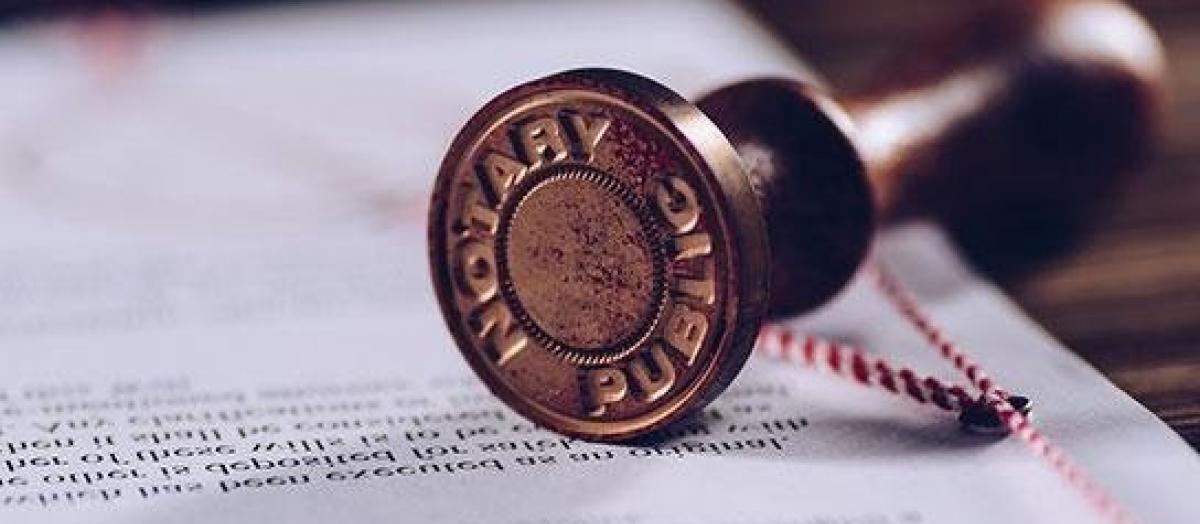Demystifying Notarial Job: Simplifying the Role and Value of Notaries
Their role, typically shrouded in enigma for many, brings substantial weight in guaranteeing the legitimacy and stability of crucial records. By unraveling the complexities surrounding notarial techniques and losing light on the importance of their acts, a more clear understanding arises of the essential function notaries play in promoting the material of legal and legal arrangements.
The History of Notarial Work
The background of notarial work dates back to ancient human beings, where scribes played a crucial role in recording crucial details and authenticating records. This led to the growth of notaries, individuals appointed by the state to act as unbiased witnesses in legal matters.
During the Middle Ages, notaries got prominence in Europe, with their functions increasing to include drafting legal documents, certifying trademarks, and preserving documents. The surge of worldwide trade better emphasized the value of notarial work in confirming contracts and contracts throughout boundaries.
In the modern era, notaries remain to play an important function in lawful and company transactions by validating identifications, validating the credibility of documents, and stopping scams. Their duty in accrediting the validity of agreements includes a layer of safety and security and depend the ever-evolving landscape of business and legislation.

Tasks and Responsibilities of Notaries
The historical evolution of notarial work from old civilizations to the modern era has actually shaped the distinct duties and responsibilities that notaries support in lawful and service deals today. Notaries play a vital role in verifying the authenticity of papers and the identification of notaries. Among their primary responsibilities is to witness the finalizing of vital documents, such as deeds, wills, and contracts, to make sure that all celebrations are entering right into agreements intentionally and willingly. Notaries likewise confirm that signatures are of audio mind and not under discomfort or threat.
Moreover, notaries are tasked with administering affirmations and oaths, which are essential in legal procedures and the implementation of sworn statements. They accredit duplicates of initial documents, supplying guarantee to organizations that the copies hold true replicas of the originals. Notaries must maintain precise records of all transactions they manage to make certain transparency and liability. In general, the responsibilities and obligations of notaries are necessary in guarding the stability and legality of various papers and purchases.
Notarial Certificates and Signatures
Exemplifying careful interest to detail, notarial certificates and trademarks function as important elements in verifying the credibility of legal records. Notarial certificates usually have crucial information such as the date of registration, the names of the signatories, a description of the document, and the notary's main seal. These certificates supply a clear record of the notarial act, making certain that the paper can be quickly identified and traced back to the notary who managed the procedure.
Signatures play an essential function in notarial work, as they indicate the contract and authorization of the celebrations involved. Notaries thoroughly witness the signing of records to verify the identity of the signatures and confirm that they are authorizing of their own free choice. By fastening their main seal and trademark to the paper, notaries certify that the needed treatments have visit this web-site been complied with and that the file is enforceable and valid.
In essence, notarial certifications and signatures are the characteristic of credibility in legal deals, providing assurance to all events entailed that the papers are genuine and binding.
Importance of Notarial Acts

Notarization Process Clarified
Describing the notarization process provides quality on the vital actions involved in verifying lawful files. The registration process commonly begins with the specific presenting the record to a notary public. The notary after that validates the endorser's identity through appropriate identification methods. When the identification is validated, the notary makes certain that the specific authorizing the file does so willingly visit the site and with no coercion.

Verdict

Notarial certificates generally have essential details such as the date of notarization, the names of the notaries, a summary of the record, and the notary's main seal. These certifications provide a clear record of the notarial page act, making certain that the file can be quickly recognized and traced back to the notary who oversaw the procedure.
By fastening their official seal and trademark to the document, notaries certify that the needed procedures have actually been adhered to and that the file is enforceable and valid.
By validating the identification of the signatories, confirming their determination to get in into the agreement, and certifying the date and location of the finalizing, notaries play a vital duty in supporting the validity of lawful records.After the document is authorized, the notary will affix their main seal or stamp onto the paper.